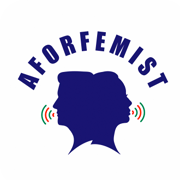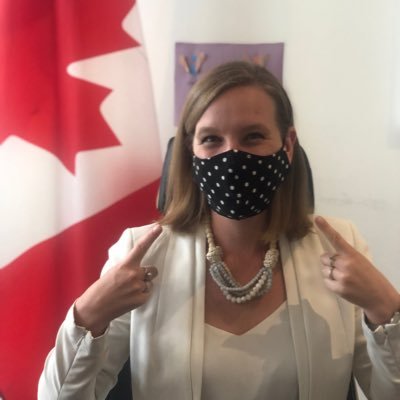The catastrophic impact of the COVID-19 pandemic cannot be overstated. Major disruptions, especially in education, have occurred, of 9 out of 10 learners worldwide, millions of children live in countries faced with humanitarian crises. This is exceptionally severe for refugees and other forcibly displaced children, youth, and most importantly girls, who are faced with the most risk of being left behind.
On Monday 8 February 2021 the Honourable Karina Gould, Minister of International Development announced the launch of the Together for Learning campaign at an online launch event attended by Refugee Education Council members, youth, a 3-year, international targeted effort to promote quality education and lifelong learning for refugees, forcibly displaced, and host-community youngsters.
“By listening to, learning from, and acting on the advice of refugees and forcibly displaced people, we will increase local capacity and make room for new and diverse ways of programming and delivering education. The Together for Learning campaign will strengthen partnerships and unite global stakeholders, national governments, communities, and youth to drive global change. Together we will ensure we do not lose hard-won gains in education and that the future of all children and youth is full of hope.” She said.
Minister Gould also launched the Refugee Education Council, a key initiative of this campaign. The council is made up of youth advocates, women, teachers, parents, and community leaders who are living as refugees or forcibly displaced persons or living in communities that host them. Their knowledge and experience will shape solutions and approaches to help address educational needs. In 2018, Canada, at the Charlevoix Summit, mobilized nearly $3.8 billion, invested towards education for women and girls in crisis and conflict situations.
Some of the Refugee Education Council members gave remarks during the virtual launch of the Together for Learning campaign, “I believe that it’s significant for refugees and internally displaced people to be not only provided with quality education but also have the space to articulate their own needs. By integrating the expertise of refugees, Canada can lead other donor countries by example.” Said refugee leader and advocate Malual Bol Kiir.
Foni Joyce Vuni, a community worker and youth activist, said that her dream has been to improve the identity, image, and reputation of refugees, to become exemplary to young ladies and to be an advocate for other forcibly displaced children and youth who do not have a platform to have their voices heard.
“I have already achieved some of these ambitions, and I look forward to using my role on the council to help even more refugees reach their full potential through education,” Foni said.
The Together for Learning campaign will focus on 4 key areas of work: the delivery of effective programs building on Canada’s Charlevoix Education Initiative, amplifying local voices, diplomatic engagement, and improving the quality, availability, and use of data to guide efforts and ensure effectiveness.
Minister Gould revealed that there will soon be a launch for a call for concept notes, which will bring together Canadian organizations and local actors in sub-Saharan Africa to promote change and build evidence on the best ways to address the education needs of refugees and displaced children and youth, especially girls.
UNHCR reported that approximately 3.7 million refugee children are out of school and girls are 2.5 times more likely to be out of school if they live in conflict-affected countries. For every 10 refugee boys enrolled in secondary-level education, there are only about 7 refugee girls.
In attendance at the virtual event was Alphonso Davies, a United Nations High Commissioner for Refugees Supporter, a Canadian professional soccer player and former refugee and other participants who at the launch, shared personal stories of displacement and their passion for education.
The Refugee Education Council was created in partnership with the Canadian International Education Policy Working Group (CIEPWG).


